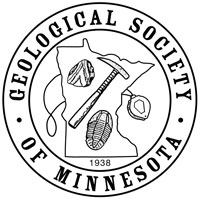Seminar Lab Date:
Seminar Lab presenter:
Seminar Lab Subject:
Seminar Lab Location :
A recording of this lecture is available on the Geological Society of Minnesota YouTube channel here: https://www.youtube.com/watch?v=Qw98idm2YA8
Seminar Lab Details:
Abstract: The Grand Canyon is one of the most distinctive and revered geological landscapes on Earth and an essential part of the geological heritage of the United States. As long, wide, and deep as Grand Canyon is, it is very young geologically—its age is dwarfed by the ages of the layers and bodies of rock that are exposed in its depths. The components, structures, and sequences of these rocks encode almost two billion years of continental evolution. Grand Canyon is also a place continuously inhabited for many millennia; and as a reach of the Colorado River it connects to issues of water and energy that affect the entire southwestern U.S. While nothing can quite match an actual visit to Grand Canyon, this presentation will bring some of the geologic history and sublimity of Grand Canyon to you.
Biography:
Steven Semken is professor of geology and education in the School of Earth and Space Exploration; a Senior Global Futures Scientist in the Julie Ann Wrigley Global Futures Laboratory; and an affiliated faculty member of the Center for Education through Exploration, the Global Drylands Center, and the Mary Lou Fulton Teachers College at Arizona State University.
Steve is an ethnogeologist and geoscience education researcher whose work integrates geology, geography, ethnography, education, and technology. He investigates the influences of sense of place, of culture, and of affect on modes of teaching, learning, and doing research in the Earth sciences in the real and virtual realms. Before joining ASU in 2003, he taught for 15 years at Diné College, the Tribal College of the Diné (Navajo) Nation. Steve and his students work in the geologically and culturally diverse places of the American Southwest, Latin America, and the Caribbean; with particular attention to Indigenous and Hispanic/Latinx communities in these places. The goal of his research group is to apply place-based and culturally informed methods of geoscience teaching to foster improved access to geoscience studies and careers for underrepresented people, environmental and cultural sustainability in underserved regions, and greater public Earth-science literacy.
Steve teaches ASU courses in regional geology and sustainability of the American Southwest, in field geology, in the history of the Earth and Solar System, and in research-based Earth and space science teaching methods. He regularly offers popular public geological talks, workshops, and field trips for outreach, education, and teacher professional development at National Parks, State Parks, and other public lands across Arizona, and also online. Steve teaches courses in Arizona and Southwest geology for the local community through the Osher Lifelong Learning Institute at ASU.
Steve is a Fellow of the Geological Society of America, a former Traveling Speaker for the EarthScope Program, and a Past-President and former Distinguished Speaker of the National Association of Geoscience Teachers. He was a Visiting Professor at the United States Air Force Academy in 1998. He earned a Ph.D. (1989) and S.B. (1980) from the Massachusetts Institute of Technology and an M.S. (1984) from the University of California, Los Angeles. Steve has been recognized with the highest awards for undergraduate science teaching at three different institutions where he has taught: Arizona State University (Zebulon Pearce Distinguished Teaching Award), Diné College, and the Massachusetts Institute of Technology (Goodwin Medal).
